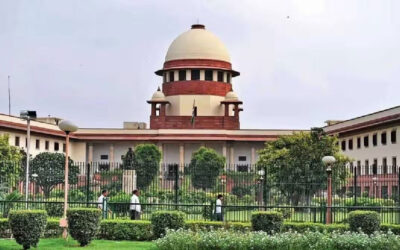“The world may not change if you adopt a child, but for that child their world will change.”
The concept of adoption is as old as the society itself but the laws governing adoption have come into being only very recently. England was the first country that passed laws on adoption as recently as 1926 by passing the Adoption of Children Act in 1926. Until that date adoption had not been recognized as a legal concept. This law required the consent of both the biological parents and that of the adoptive parents. Although the Act recognized that adopted children benefited from the same rights, duties, liabilities and obligations as a birth child, it did not ensure the child’s full integration into the adoptive family, nor were inheritance rights replaced in the birth family. A beginning was made through this law to protect the rights of the adopted child. In India however, adoption falls within the ambit of various personal laws and due to the operation of different personal laws here, it can be said that there are primarily two different laws that exist on adoption. Formal adoption is not allowed among Muslims, Christians, Parsis and Jews and hence these are governed by the Guardians and Wards Act, 1890 while Hindus, Sikhs, Buddhists and Jains follow the law as laid down by the Hindu Adoptions and Maintenance Act, 1956.
Children are considered to be the biggest blessing on earth and the child of today is the leader of tomorrow. Just like every coin has a flip side, the fact that while many children are pampered from their birth does not negate the reality of thousands of children being given up at birth itself. Most of the children who are abandoned, become victims of human trafficking and sexual violence and it is only the fortunate ones who are taken to adoption agencies and hope for a better life while waiting to get adopted by one or the other family. Even though statistics show us that the cases of adoption are on a rise, we still have to go a long way before all the taboos surrounding the subject are fully removed.
Simply put, adoption is a process whereby a person assumes the parenting for another and, in doing so, permanently transfers all rights and responsibilities, along with filiation, from the biological parent or parents.
In India, Hindu Law is the only law that gives equal rights to an adopted child vis a vis a natural born child. This may be due to the fact that a son is considered to be indispensable for the spiritual welfare of the family and it is the male child who will carry the family name forward. The laws of adoption under the Hindu law are quite strict as only a male child who is not an orphan can be adopted. Restrictions are also imposed on the caste and Gotra of the adopted child. Further, under the Hindu Law, only a male has the right to adopt and the consent of the wife is not required for the same. Under the modern Hindu Law however, every Hindu, male or female has the capacity to make an adoption provided he or she has attained majority and are of sound mind. Most of these laws, rules and regulations have been enumerated in the Hindu Adoption and Maintenance Act of 1956. Also, it has to be noted that the adoptions once made by the parents cannot be cancelled by the parents, nor can the adopted child renounce the adoptive family and go back to his/her birth parents. Adoption is generally held to be permanent in nature, with neither party going back on their words. This has been stated in section 15 of The Act. But care has to be taken that the adoption referred to in this section is a valid adoption.
While the Hindu Adoption and Maintenance Act is for the Hindu society, the Guardian and Wards Act of 1890 is sensitive to the personal laws of other religions which do not come under the Hindu Adoption and Maintenance Act of 1956. The Guardians and Wards Act, 1890 was a law to supersede all other laws regarding the same. It became the only non-religious universal law regarding the guardianship of a child, applicable to all of India except the state of Jammu and Kashmir. This law is particularly outlined for Muslims, Christians, Parsis and Jews as their personal laws don’t allow for full adoption, but only guardianship. It applies to all children regardless of race or creed. As per this law, an application has to be filed by the person who was willing to take the child under himself ad act as his guardian. Such application should contain all the possible information that would have been required, including the information about the guardian and any reason as such for the guardianship Once the court admits the application, a date for a hearing would be set. The court will hear evidence before making a decision. Unlike in the procedures given in the Hindu Adoption and Maintenance Act, 1956, where a person once adopted has a single set of parents, here a minor and his property could have more than one guardian. It was required under these cases of guardianship that the court use its discretionary power and considered the interests of the minor. His/her age, sex, religion, the compatibility quotient with the guardian, the death of the parent, etc. must be taken into consideration. The minor’s preference may also be taken into consideration.
Muslim law usually follows certain different practices for adoption. In Islam, adoption is generally called as Kafala. This practice is highly regulated and while adoption is not prohibited, it is unlawful to attribute one’s adopted child to oneself, as if there is a biological relationship. In Islam, an adopted child retains his/her biological name and does not change his/her name to match that of the adoptive family. The adopted child also inherits from his/her biological parents and not automatically form the adoptive parents. Further it is laid out that if the child is provided with property/wealth from the biological family, adoptive parents are commanded to take care and not intermingle that property/wealth with their own. They serve merely as trustees.
The personal laws of these communities also do not recognize adoption and here too an adoption can take place from an orphanage by obtaining permission from the court under Guardians and wards act. A Christian has no adoption law.
Unlike laws related to crime and punishment, there are no uniform laws regarding family matters in the Indian context. Treating all citizens equally irrespective of their caste and religion is the need of the hour. In case of adoption, the conspicuously different laws for Hindus and Non-Hindus creates an emotional problem. The non-Hindu parents, who may want to adopt a child and treat him/her as their own are not legally allowed to call themselves the parents or claim the child as their own. Hence, there has been a cry for a uniform civil code with respect to adoption. India being signatory to CRC (Convention on the Rights of a Child), such uniformity is necessary so that the rights of adoptive children can well be enhanced and protected.
As far as the rules governing adoption in India is concerned, the same is done by Central Adoption Resource Authority (CARA) which is the nodal agency to monitor and regulate in-country and intra-country adoption and is a part of Ministry of Women and child care.
Following are the certain essential conditions in order to be eligible to adopt a child:
- The procedure for adoption is different in case of Indian citizen, NRI or a foreign citizen and a child can be adopted by any of the three.
- Irrespective of their gender or marital status, any person is eligible to adopt.
- Provided that a couple is adopting a child, they should have completed two years of stable marriage and both should agree for the adoption.
- 25 years should be the minimum age difference between the child and the adoptive parents.
WHEN CAN A CHILD BE ELIGIBLE TO BE ADOPTED?
Any orphan, surrendered or abandoned child is legally declared free for adoption by the child welfare committee as per the guidelines of the Central Government of India.
- A child without a legal parent or a guardian or the parents are not capable of taking care of the child anymore is said to be an orphan.
- When a child is deserted or unaccompanied by parents or a guardian and the child welfare committee has declared the child to be abandoned, a child is considered to be abandoned.
- Renounce on account of physical, social and emotional factors that are beyond the control of parents or the guardian is called a surrendered child as declared by the child welfare committee.
- In case of adoption, a child requires to be “legally free”. A child is considered to be legally free if even after trying their level best the police fails to find the true parent or guardian of the child.
WHAT ARE THE NORMAL CONDITIONS TO BE FULFILLED BY PARENTS?
- The adoptive parents need to be mentally, physically and emotionally stable.
- The adoptive parents should be financially stable.
- The adoptive parents should not be suffering from any life- threatening diseases.
- Apart from cases of special needs children, couples with three or more kids are not allowed for adoption.
- A single female is allowed to adopt a child of any gender but a single male is not allowed to adopt a girl child.
- The maximum age limit of a single parents should be 55 years.
- In case of couple, the cumulative age should not be more than 110 years.
- On the date of registration, the age of parents should be as per CARA guidelines.
All said and done, it should not be forgotten that adoption brings joy to many, it not only gives happiness to childless couples, but also brings joy to kids who were abandoned by their biological parents. All efforts should be made by all the concerned key players to make this process as seamless and less cumbersome as possible.

